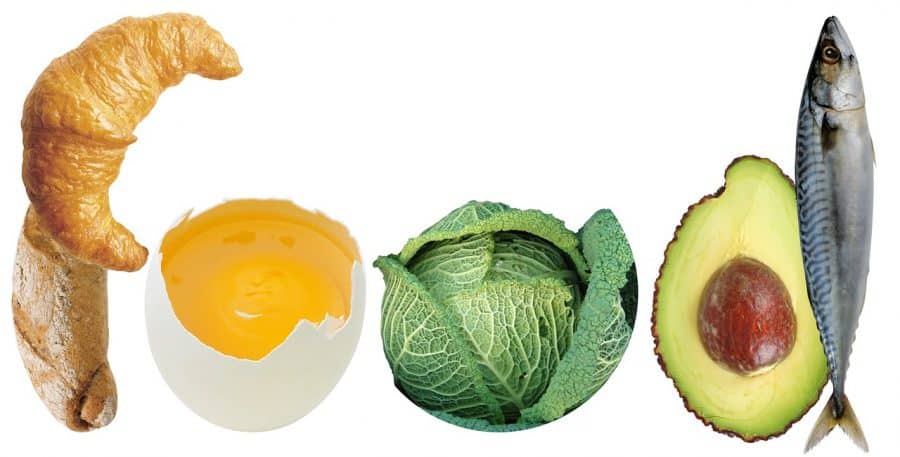Your body needs minerals to stay healthy. They accomplish different jobs, such as keeping the bones, muscles, heart, and brain functioning perfectly. Every cell in the body depends on minerals for proper structure and function. For the sake of clarification, minerals are naturally occurring inorganic elements. They can be found in the natural environment and extracted without chemical change.
Erosion breaks down stone, rocks, and sand to form soil. As we all know, soil is the foundation for plant growth. The minerals are passed on to the plants, which in turn are passed on to the animals that eat them. People, just like herbivorous animals, obtain their necessary nutrients from plants.
As with vitamins and other essential nutrients, mineral requirements vary with age and gender. Severe shortages can alter the delicate balance in the body. If a type of imbalance isn’t corrected, a chain imbalance reaction can begin, which in turn leads to illness. Minerals fall into two distinct categories: macro minerals and micro minerals. Both types are equally important.
The difference between macro and micro minerals
Knowledge is power when it comes to your health. This is precisely why you need to understand the difference between macro and micro minerals. Let’s start with macro minerals. They’re present at larger levels in the human body. The most important micro minerals are magnesium, calcium, potassium, phosphorous, and sulfur.
Micro minerals, commonly referred to as trace minerals, are needed in very small amounts, but they take part in various biochemical processes. They include iron, zinc, iodine, selenium, copper, manganese, chromium, silica, and baron.
Generally speaking, people get the minerals they need by eating a large variety of foods. In some cases, the doctor might recommend a supplement.
Eating well - macro minerals
A healthy balanced diet is enough to provide all the nutrients your body desperately needs.. As long as you eat well, you're fine. Speaking of which, you're probably curious to know which foods are rich in macro minerals. Keep on reading.
- Magnesium-rich foods: mackerel, soybeans, spinach, dried figs, brown rice, peanut butter, dark chocolate, cashew
- Calcium-rich foods: cheese, broccoli, sunflower seeds, spinach, yoghurt, milk, figs, collard greens, sardines, almonds
- Potassium-rich foods: bananas, salmon, mushrooms, broccoli, spinach, yoghurt, zucchini, white beans, potatoes, avocado
- Phosphorus-rich foods: pumpkin seeds, whole wheat bread, turkey, beef, oysters, salmon, egg yolk, parmesan, Brazil nuts, sesame seeds
- Sulfur-rich foods: eggs, chickpeas, fish, turkey, beef, walnuts, couscous, lentils, oats, red cabbage, Brussel sprouts, turnip tops
Quick overview of dietary micro minerals
Micro minerals, or trace minerals, act as catalysts for enzymatic, chemical and metabolic reactions in the body. Eating a well-balanced diet will supplement your body with all the nutrients it needs, including micro minerals.
- Iron-rich foods: clams, chicken breast, beef, spinach, beans, cashew, dark chocolate, sesame seeds, liver, pumpkin seeds
- Zinc-rich foods: squash seeds, spinach, mushrooms, dark chocolate, wheat germ, cereals, shellfish, nuts
- Iodine-rich foods: spinach, quinoa, potatoes, kidney beans, lentils, figs, soybeans
- Selenium-rich foods: brown rice, beef liver, chicken, sunflower seeds, tuna, eggs, oat bran, Brazil nuts, sardines
- Copper-rich foods: cashews, almonds, quinoa, mushrooms, lentils, raisins, avocados, sesame seeds
- Manganese-rich foods: tofu, brown rice, pine nuts, pineapple, lima beans, spinach
- Chromium-rich foods: oats, potatoes, broccoli, grapes, beans, green pepper
- Silica-rich foods: celery, tomatoes, beets, catus, carrots, peppers, cucumbers
- Boron-rich foods: grape juice, avocados, beans, peanut butter, apples, milk
Fulvic ionic minerals provide the necessary macro and micro minerals
The lack of minerals in the diet or the difficulty absorbing nutrients from food is the reason why many people resort to dietary supplementation. Fulvic ionic minerals provide the necessary macro and micro minerals. It’s is one of the best health supplements you can take, containing highly bio-available colloidal/ionic trace minerals and elements.
Nowadays, it’s easier than ever to buy fulvic ionic minerals. You can acquire quality products over the Internet, but exercise caution. If you don’t supplement your body, it’s most likely malnourished. Taking a dietary supplement ensures better absorption of the nutrients in your diet.
Commercial products are extracted from natural sources. More exactly, the excess fulvic ionic minerals not used by plants are washed down through the soil into drinking water. These precious nutrients are recovered from the sediments. Since they’re water-extracted, they have an advantage over chemically extracted products. The latter don’t provide the same benefits.
Final considerations
At times, minerals are discussed separately, yet attention needs to be paid to the fact that the actions of macro and micro minerals in the body are interrelated. To be more precise, no single one can function without the other, providing the body with the necessary charge or “ionization”. A rich diet will provide assurance of essential minerals, but it’s also worth taking a supplement.
Macro and micro nutrients are the most permanent parts of living beings. This explains why it’s important to ensure that you get a variety of minerals. So, don’t get too comfortable.

Isreal olabanji a dental assistant and public health professionals and has years of experience in assisting the dentist with all sorts of dental issues.
We regularly post timely and trustworthy medical information and news on Fitness, Dental care, Recipes, Child health, obstetrics, and more.
The content is intended to augment, not replace, information provided by your clinician. It is not intended nor implied to be a substitute for professional medical advice. Reading this information does not create or replace a doctor-patient relationship or consultation. If required, please contact your doctor or other health care provider to assist you to interpret any of this information, or in applying the information to your individual needs.


